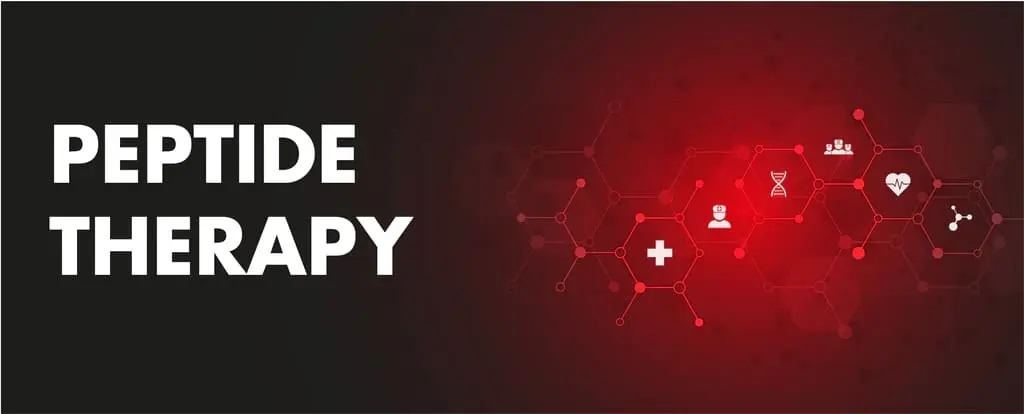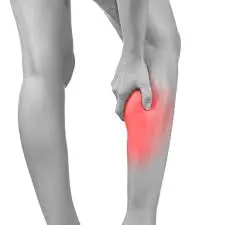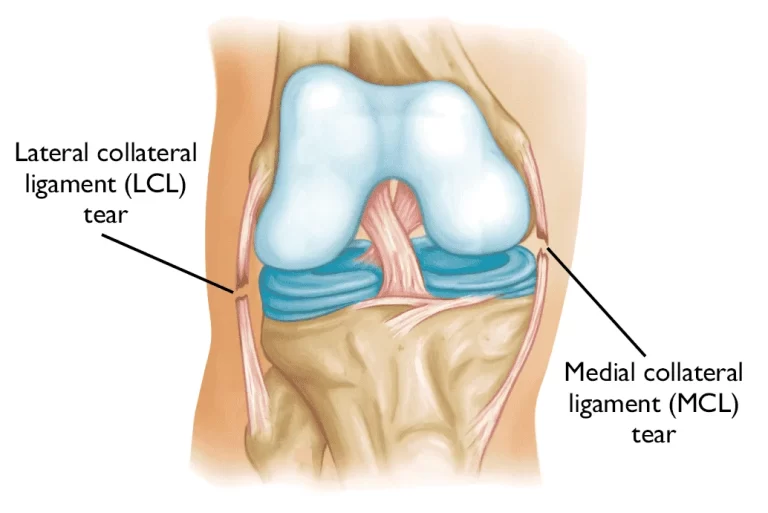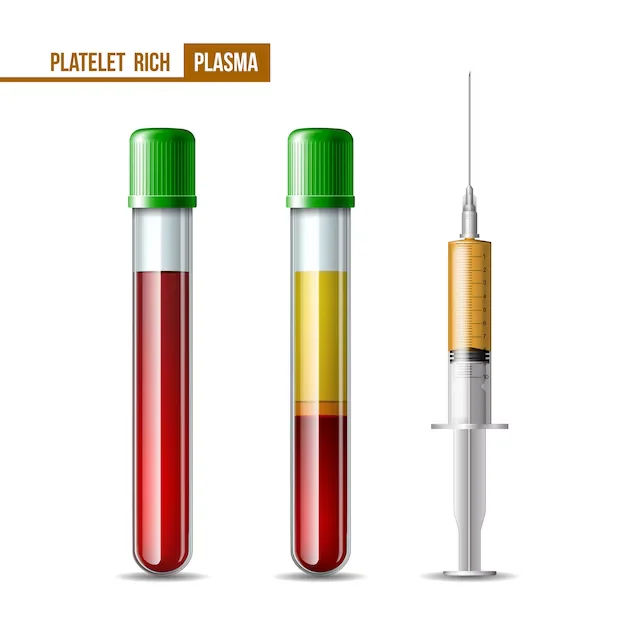Peptide Therapy
What is Peptide Therapy?
Peptide therapy is a medical treatment approach that utilizes peptides, which are short chains of amino acids, to influence various physiological functions in the body. Peptides are naturally occurring molecules in the body and play various roles in biological processes, including cell signaling, immune response, and hormone regulation.
Due to its many health advantages, peptide treatment has become more popular recently. And peptide treatment, what is it? Does it address all of your worries about wellness and health?
Long strands of amino acids join together to form proteins. Since peptides are far shorter chains of amino acids than amino acids, they are not the same thing even if they have many similarities.
Peptides appear to be more readily absorbed by the body than proteins because they are smaller and less dense. This facilitates easier penetration of the skin and intestines, allowing for a quicker entrance into the circulation.
Naturally occurring peptides can be found in foods like:
- Meat
- Seafood and crustaceans
- Milk
- Eggs
- Hemp seed and flaxseed
- Wheat
- Lentils with beans
- Soy
- oats
Peptides may also be found in a wide range of goods, such as skin care items, dietary supplements, and injectable treatments of peptide therapy.
Because lab-made peptides may imitate natural peptides, they are employed in treatments for illnesses including multiple sclerosis and diabetes. Peptides have a variety of functions throughout the body.
What Does Peptide Therapy Do?
The benefits of peptide treatment might differ depending on the kind. The arrangement of amino acids in peptides allows for their separation from one another.
According to studies, peptides can generally be helpful:
- Reduce hypertension
- Boost the immune system’s performance
- Diminish inflammatory response
- bolster the skin’s defenses against germs to aid in healing
- Avoid thrombosis
- serve as protective agents
Additionally, peptides may be crucial for cellular communication. They are able to communicate with and activate different receptors. They can affect several body functions by inducing the production of hormones and messaging chemicals.
Different Types of Peptide Therapy And Their Benefits
Ipamorelin has the potential to promote both muscle growth and weight reduction. It could accomplish this by promoting the synthesis of human growth hormones. It has been researched as a therapy for hypogonadism and is widely used by bodybuilders.
Because of the adverse effects of creatine powders, which include digestive problems, peptide treatment has become a viable option. Peptides may help you achieve your sporting objectives and enhance your athletic performance when paired with training and exercise.
Disorders and Health Objectives Handled by Peptide Therapy
Peptide therapy is versatile and has potential in personalized medicine and therapeutic interventions. It provides a multimodal approach to treating a range of medical disorders and health goals.
Rejuvenating and Antiaging The Skin
A new method for reviving the skin and battling the indications of age is peptide treatment. Collagen-stimulating peptides are one type of peptide that can improve skin suppleness and lessen wrinkle appearance.
These peptides are well-liked in aesthetic and cosmetic medicine because they promote the creation of collagen, a protein that is essential for keeping skin looking young and bright.
Controlling Weight And Promoting Metabolism
Peptides are involved in controlling metabolism and maintaining a healthy weight. Ghrelin mimetics are examples of peptides that can aid in appetite control, facilitating weight management. development hormone-releasing peptides are one type of peptide that can increase metabolic rate and support both muscle development and fat reduction.
Muscle Building And Athletic Performance
Peptide treatment is frequently used by athletes and fitness enthusiasts to improve muscle development and sports performance.
Lean muscle growth, strength, and endurance can be enhanced by growth hormone-releasing peptides and selective androgen receptor modulators (SARMs) without the unfavorable side effects of conventional performance-enhancing medications.
Immune System Support
Moreover, peptide treatment can help to strengthen the immune system. For instance, thymosin alpha-1 has been used to strengthen the immune system and fight infections. This peptide is essential for the body’s defense against infections and illnesses because it promotes the development of T lymphocytes.
Hormone Regulation And Balance
Peptides are useful agents in the management of hormone dysregulation. In situations of growth hormone shortage, growth hormone-releasing peptides can aid by stimulating growth hormone release.
Furthermore, by regulating the release of sex hormones, peptides such as gonadotropin-releasing hormone (GnRH) analogs can treat hormonal problems.
Cognitive Enhancement
The potential of cognitive peptides, like nootropics, to improve cognitive function has drawn interest. These peptides have the potential to enhance mental clarity, attention, and memory. They function by stimulating neural plasticity and altering neurotransmitter systems.
Chronic Diseases And Pain Management
Substance P inhibitors are one type of peptide that can help reduce pain and discomfort. These peptides are useful in the treatment of chronic pain syndromes such as fibromyalgia because they inhibit pain signals.
Sexual Health And Fertility
Concerns about fertility and sexual health can also be addressed with peptides. Certain peptides, such as kisspeptin and gonadotropin-releasing hormone (GnRH) analogs, have the ability to trigger the production of sex hormones, which may help cure sexual dysfunction or assist in the treatment of infertility.
More Benefits Of Peptide Therapy
Improves The Skin Barrier
The skin barrier is your first line of protection against germs, pollutants, and pollution, and it plays a significant role in maintaining your health. Because of their antibacterial qualities, peptides aid in the battle against acne-causing microorganisms.
The relationship between antimicrobial peptide levels and skin conditions is now being studied by experts. They are examining the potential correlation between elevated or decreased amounts of these peptides and ailments such as rosacea, dermatitis, or psoriasis.
Helps Treat Hypertension
Peptides have been shown in a 2008 research to help reduce blood pressure. Advantages might be felt as an alternative to or in addition to conventional high blood pressure treatments.
Aid in preventing blood clots: Research suggests that taking peptide supplements may aid in preventing blood clots.
Immunity Boosting Properties
Peptides can speed up healing and recovery and aid in the prevention of disease.
The Process of Peptide Therapy
Peptide therapy is a dynamic, personalized procedure led by medical experts who continuously evaluate and modify the course of treatment to suit the unique requirements and goals of each patient.
Following the first evaluation, the medical professional develops a peptide treatment regimen according to the patient’s requirements. This includes deciding on the proper peptides, doses, and modes of administration.
Depending on the patient’s health and preferences, there are several ways to provide peptides: injections, oral capsules, or topical creams.
The chosen peptides are frequently intended to target the particular health objectives specified in the first consultation.
For instance, a patient pursuing anti-aging benefits could be prescribed a regimen that included peptides that stimulate collagen formation. Following the start of peptide treatment, the patient has to be regularly monitored.
This entails monitoring the patient’s development, analyzing any changes in symptoms, and determining if the therapy is working.
In order to make sure the therapy is safe and progressing as planned to provide the intended effects, healthcare professionals may schedule follow-up visits and order diagnostic procedures. The individual’s reaction may require modifications to the peptide regimen.
To maximize the therapy, adjustments to the dosage, adjustments to the peptide selection, or adjustments to the delivery schedule can be required.
Following the start of peptide treatment, the patient has to be regularly monitored. This entails monitoring the patient’s development, analyzing any changes in symptoms, and determining if the therapy is working.
In order to make sure the therapy is safe and progressing as planned to provide the intended effects, healthcare professionals may schedule follow-up visits and order diagnostic procedures. The individual’s reaction may require modifications to the peptide regimen.
To maximize the therapy, adjustments to the dosage, adjustments to the peptide selection, or adjustments to the delivery schedule can be required.
What Advantages Do Peptide Injections Offer Compared To Oral Supplements?
Oral peptide supplements are unlikely to be as effective as injections since the body must first absorb the tablets through the digestive system. Peptides are more readily broken down by the digestive system than other proteins because they have shorter amino acid chains.
An absorption rate of 50% or less may arise from this. Supplements are not always guaranteed to be safe because the FDA does not regulate them to the same extent as it does drugs.
It is more likely that the supplements you are taking are safe and effective if you have your peptide injections from a medical professional who is certified and experienced.
By avoiding the digestive system and delivering peptides straight to the circulation, peptide injections maximize the rate of absorption.
Peptide injections not only improve absorption but are instantly bioavailable, allowing your body to use peptides virtually instantly. It takes hours for oral vitamins that are not metabolized by the stomach to become accessible and begin acting.
You should talk to your healthcare professional about other options if your fear or aversion to needles prevents you from receiving peptide injections.
They could be able to point you in the direction of trustworthy and secure oral supplements. They could also be able to suggest a course of action and a dose that will assist address your health issues.
Are There Side Effects To Peptide Therapy?
In healthy individuals, peptide treatment is unlikely to result in significant adverse effects. This is due to the fact that therapeutic peptides and those found in diet are comparable. Even though peptide treatment is relatively safe, you should still see a doctor.
To ensure it’s safe, people should speak with their doctor if they are taking prescription drugs, are pregnant or nursing, or have any chronic health issues.
Although peptides by themselves are generally safe, additional components in peptide-containing products, especially those for topical skincare, may be adverse response prone. Always be sure a supplement or allergy therapy has all of the chemicals you are sensitive to.
The safest method to receive peptide treatment is through a doctor who is certified and experienced in the field.
The Food and Drug Administration (FDA) does not closely regulate supplements like it does drugs; a physician can guide you to the safest and most efficient peptide therapy.
This can also assist in eliminating uncertainty over the recommended dosage of peptide treatment, as taking too much might have unfavorable side effects.
By utilizing the Administrators In Medicine (AIM) DocFinder, you may verify that a physician holds the appropriate licensure and certification.
You might also be able to see whether a doctor has been subject to disciplinary action as a consequence of a complaint in some states.
You should take the lab that provides the peptides into account when choosing a peptide treatment provider. Verify if the lab has received FDA (Food and Drug Administration) certification.
With this accreditation, the lab may demonstrate that it complies with FDA standards for operational safety. Additionally, it indicates that the lab’s therapies are safe since they adhere to Current Good Manufacturing Practices (cGMP).
Are Peptides Safe? Peptide Therapy’s Safety and Effectiveness
Because peptide therapy may target certain biological pathways and activities, it has demonstrated promise in treating a variety of health issues.
Peptide therapy’s efficacy varies according to the specific peptides utilized and the patient’s desired state of health.
For instance, it can be very beneficial for managing weight or encouraging the growth of muscle, but the outcomes may be different for anti-aging or cognitive-enhancing objectives.
The complete potential of peptide treatments in a range of medical specialties is still being investigated by scientific studies and clinical trials. When employing peptide treatment, safety, and adverse effects are important factors to take into account.
Even while peptides are usually well tolerated, overuse or improper administration might result in negative consequences. Hormonal abnormalities, allergic responses, and injection site discomfort are examples of side effects.
Seeking advice from medical experts is crucial as they can guarantee that the course of therapy is suitable, safe, and customized for each patient.
In many nations, peptide treatment is normally prescribed, guaranteeing that it is carried out under the guidance of a licensed healthcare professional.
Prescription requirements assist prevent abuse and upholding safety and effectiveness standards. The supervision guarantees that pharmaceutical-grade peptides that adhere to quality and safety requirements are utilized.
To reduce the hazards connected with unregulated or counterfeit goods, it is essential to obtain peptides from reliable and controlled sources.
It can be risky to obtain peptides from unregulated sources since there is a chance that the peptides’ quality and purity will be compromised, which raises the possibility of negative effects or less-than-ideal outcomes.
FAQ
What is a peptide used for?
Proteins are larger molecules called peptides. They could have anti-inflammatory, pro-aging, or muscle-building qualities. According to recent studies, some peptide kinds may be helpful in lowering inflammation, killing microorganisms, and delaying the aging process.
Is peptide therapy legal?
While the use of peptides in clinical trials and commercial goods is subject to stringent regulations, their usage for research purposes is lawful in the US. It’s fascinating to see this field develop because of the rising need for peptide-based treatments and the possibility of scientific advancements.
How long is peptide therapy?
What Is the Duration of Peptide Therapy? Usually, peptide treatment takes two to four weeks to start showing effects. In order for your body composition to properly respond to the new modifications, you will need to continue the therapy for a further three to six months after that.
Who needs peptide therapy?
If the appropriate peptides are employed, peptide therapy may be beneficial for both men and women, particularly athletes. Those who wish to preserve their skin and prevent aging symptoms would also make excellent candidates. Among the most prevalent and appropriate candidates for the treatment are middle-aged adults.
Who can benefit from peptide therapy?
Growth hormone synthesis is boosted by peptide treatment, which aids in the development of lean muscle. It is well-liked among bodybuilders and has been studied as a potential hypogonadism therapy. Peptides have the potential to enhance sports performance when combined with proper training and activity.
Are peptides better than steroids?
In general, peptides have fewer adverse effects than steroids. Individual responses could differ, though, and using peptides incorrectly can still have negative consequences. Steroids can have a variety of adverse effects, some of which can be severe and persistent, especially when taken often or in large dosages.
Is peptide therapy expensive?
Depending on the kind you receive and how frequently you require an injection, prescription peptides might run you several hundred dollars a month.







